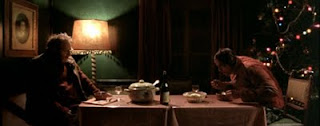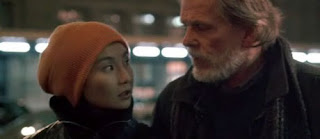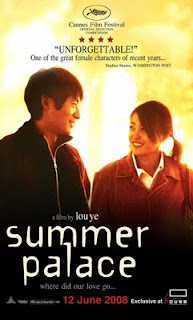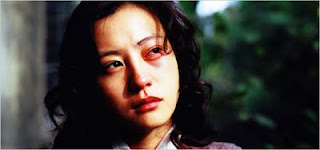 Man Vs. Nature is a very popular literary conflict that has always translated very well into the film genre. Sometimes these films are about man surviving hostel element, such as in “The Perfect Storm” or “Alive”. Other films are about man fighting against wild beast like “Jaws” or the much underrated “The Breed”. This week’s set of films similarly deal with that conflict. But more specifically, we are looking at what happens when nature says enough is enough and puts all of us in our place.
Man Vs. Nature is a very popular literary conflict that has always translated very well into the film genre. Sometimes these films are about man surviving hostel element, such as in “The Perfect Storm” or “Alive”. Other films are about man fighting against wild beast like “Jaws” or the much underrated “The Breed”. This week’s set of films similarly deal with that conflict. But more specifically, we are looking at what happens when nature says enough is enough and puts all of us in our place.  The first film of the week is a great South Korean creature feature. Joon-ho Bong’s “The Host” (2006) is about a giant crazy looking monster that is terrorizing the Han River area. The monster is a genetic mutation caused by a bunch of embalming fluids being dumped in the river. A young girl is snatched up by the monster and presumably eaten in front of her father and grandfather. Convinced that she’s still alive, her family then organizes a renegade mission to get her back and save the city. I fall in love with this film a little bit more every time I watch it. The execution of the monster scenes is flawless. Specifically, the first monster scene in the park is shot so brilliantly that I tend to skip back and rewatch it a few times. The characters are very well played and beautifully developed, each one with their own voice and quirks. And it’s surprising how much humor is fit into this film for as dark as it gets. If you haven’t seen it, I can’t suggest it enough.
The first film of the week is a great South Korean creature feature. Joon-ho Bong’s “The Host” (2006) is about a giant crazy looking monster that is terrorizing the Han River area. The monster is a genetic mutation caused by a bunch of embalming fluids being dumped in the river. A young girl is snatched up by the monster and presumably eaten in front of her father and grandfather. Convinced that she’s still alive, her family then organizes a renegade mission to get her back and save the city. I fall in love with this film a little bit more every time I watch it. The execution of the monster scenes is flawless. Specifically, the first monster scene in the park is shot so brilliantly that I tend to skip back and rewatch it a few times. The characters are very well played and beautifully developed, each one with their own voice and quirks. And it’s surprising how much humor is fit into this film for as dark as it gets. If you haven’t seen it, I can’t suggest it enough.
 I don’t think any director has explored humankind’s relationship with nature as much as Werner Herzog. His fictional films like “Fitzcarraldo” and “Aguirre: The Wrath of God” both take place deep in the South American jungle during different periods of European settlement. He has also directed quite a few documentaries on the subject like “Encounters at the End of the World” and his newest film, “Cave of Forgotten Dreams”. This week’s second film is one of his documentaries. “Grizzly Man” (2005) is the story of the life and death of Timothy Treadwell, an outdoorsman who spent a large part of his life living with and studying grizzly bears in Alaska. His gruesome death is also covered in this film. At some point, one of the bears decided that he didn’t want Timothy around anymore. This film is less about the bears and much more about the man. But that’s not to say that it’s a puff piece either. You will spend much of this film questioning (if not outright denying) the sanity of Treadwell. He seems to be borderline paranoid schizophrenic and definitely more than a little delusional. I suppose this film works just as well as a portrait of the human psyche after a very long a steady diet of zero human contact.
I don’t think any director has explored humankind’s relationship with nature as much as Werner Herzog. His fictional films like “Fitzcarraldo” and “Aguirre: The Wrath of God” both take place deep in the South American jungle during different periods of European settlement. He has also directed quite a few documentaries on the subject like “Encounters at the End of the World” and his newest film, “Cave of Forgotten Dreams”. This week’s second film is one of his documentaries. “Grizzly Man” (2005) is the story of the life and death of Timothy Treadwell, an outdoorsman who spent a large part of his life living with and studying grizzly bears in Alaska. His gruesome death is also covered in this film. At some point, one of the bears decided that he didn’t want Timothy around anymore. This film is less about the bears and much more about the man. But that’s not to say that it’s a puff piece either. You will spend much of this film questioning (if not outright denying) the sanity of Treadwell. He seems to be borderline paranoid schizophrenic and definitely more than a little delusional. I suppose this film works just as well as a portrait of the human psyche after a very long a steady diet of zero human contact.
Enjoy.




























